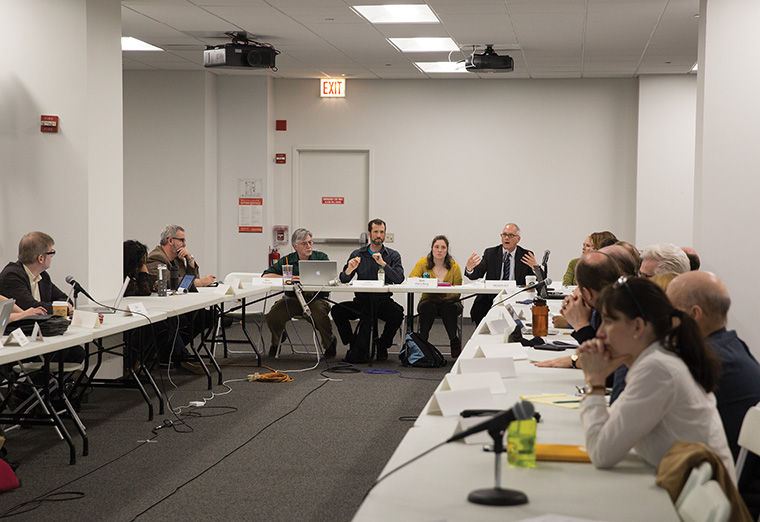Provost admits failure to communicate in FYS decision
April 20, 2015
In a single email, the First-Year Seminar program was dissolved with no clear replacement set in place—a move that resulted in the termination of the employment of six lecturers and one staff member. Now college administrators are admitting the decision could have been handled better.
Senior Vice President and Provost Stan Wearden apologized to the Faculty Senate during its April 17 meeting for not communicating the process effectively during the decision to eliminate the FYS program.
“I’m not going to try to pretend that this was done in the most perfect way,” Wearden said. “I certainly take full responsibility for the failure to communicate.”
Following last month’s meeting, the Senate drafted a letter to Wearden expressing its concerns regarding how the administration handled the FYS elimination. At the meeting, Wearden was given the opportunity to respond.
“I really appreciate the open letter,” Wearden said. “It was a very well-crafted, rational, dispassionate letter. It raised some important points that I think [are] good for us to have a conversation about.”
Wearden said the decision to eliminate FYS in such an abrupt manner resulted from several factors, including student feedback that showed a disconnect between students and the course. Another part was a personnel decision, which legally could not be openly discussed, he said.
According to Wearden, the administration could have waited to make the decision but saw many compelling reasons to act immediately as the college was already entering a reset process with the budget realignment.
“This is not a path that I want us to take,” said Peter Carpenter, Faculty Senate president. “I understand that there was a necessity felt by the administration in the way and the time that they did. This is not the way we want to do business in the future.”
Wearden and the Senate agreed that a policy to ensure shared governance and communication during program eliminations is needed.
“I think there are a number of areas in the college where strategic human resources are lacking, and this is one of them,” said Anne Marie Mitchell, an associate professor in the Communication and Media Innovation Department. “[We need to think about] how we standardize the processes and the policies that would reflect who we want to be and align with our Strategic Plan and our mission and our values.”
Lisa DiFranza, assistant director of the First-Year Seminar program, read a prepared statement, detailing the FYS elimination decision-making process through the eyes of those within the program.
DiFranza said that at the beginning of the academic year, she and Michael Lawrence, interim director of FYS, submitted a timetable to the administration for holding community conversations with faculty, students and staff in order to design a plan for a responsible overhaul and redesign of the program. She and Lawrence were told to hold off on the conversations and trust in the strategic planning process.
“We were told the committee to address the future of FYS would be drawn from [Civic Commons] participants,” DiFranza said. “Although the suggestion box format was no substitute for real conversations, we did participate in active faith.”
No committee was ever formed and no conversation ever happened, DiFranza said.
DiFranza said she met with Wearden in mid-February to discuss how to better structure conversations regarding FYS and offered to spearhead the project. Though Wearden seemed enthusiastic at the time, it was the last time he and DiFranza spoke, she said. DiFranza and Lawrence had also scheduled meetings to discuss FYS with the Provost and the dean, sending them a comprehensive outline of ideas. These meetings were repeatedly scheduled and canceled, DiFranza said.
“On March 10, Suzanne [Blum Malley, interim dean of the school of Liberal Arts and Sciences] called us in one by one and slid a layoff letter across the desk, like in the movies,” she said.
After hearing DiFranza’s statement, Faculty Senate members expressed their concern to Wearden about the way the decision to eliminate FYS was handled. Many said although they understood the reasoning behind the decision, they did not understand why it was conducted in an “inhumane” way.
“I don’t believe that the faculty were against the changing of FYS,” said Robin Whatley, associate professor in the Science & Mathematics Department. “I think that the real issue is [not letting] the six faculty go earlier in the year. Especially if there was any inkling that it would happen. The academic process of hiring is over.”
Moving forward, Wearden said he and the Faculty Senate will work to develop a policy for shared governance in decisions such as program eliminations. The Faculty Senate will also be involved in the redevelopment of the college’s first year experience, he said.








